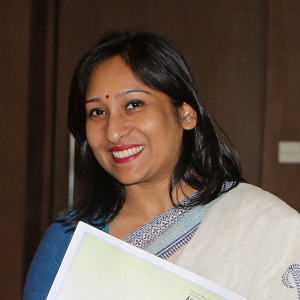How to Work on Child Learning Disability
What is Learning Disability?
Learning Disability is a lifelong neurological condition where a child or an adult experiences difficulties primarily in reading, writing, comprehension and mathematical problem solving. There are other associated difficulties such as: behavioral problem, organization, planning and memory that affect a child’s or adults functional life.
Generally, children with LD are more intelligent than their peer group. Their learning brain does not follow the linear steps of learning. Usually people learn step by step and then create a whole picture of the learning content. On the other hand, a child with LD understands the whole concept first and then discovers the small learning components. As a result it is tricky for parents and teachers to understand the difficulties or conditions that are hindering the learning process of the child. This is the reason why it is called Hidden Disability. In most of the cases when their academic scores deteriorate significantly, the teachers inform parents. In the case of adults, they somehow manage to scuffle across the academic ocean but end up struggling in their personal and professional life, as they are not equipped to cope up with the real world.
What are the different types and where do I go?
According to Diagnostic and Statistical Manual for Mental Disorder-5 (DSM-5) there are three types of Learning Disability:
1. Specific learning disorder with impairment in reading includes possible deficits in:
- Word reading accuracy
- Reading rate or fluency
- Reading comprehension
DSM-5 diagnostic code 315.00.
2. Specific learning disorder with impairment in written expression includes possible deficits in:
- Spelling accuracy
- Grammar and punctuation accuracy
- Clarity or organization of written expression
DSM-5 diagnostic code 315.2.
3. Specific learning disorder with impairment in mathematics includes possible deficits in:
- Number sense
- Memorization of arithmetic facts
- Accurate or fluent calculation
- Accurate math reasoning
DSM-5 diagnostic code 315.1.
-I suspect that my child has some form of learning disability, how do I identify them and where do I go?
How should the teacher tend to my child?
Teachers are one of the most important people in Learning Disability Management of a child. First of all they need to observe the child’s learning behavior carefully, focusing on the specific difficulties in reading, writing and mathematical problem solving.
Secondly, they need to collect preceding learning history of the child, developmental history and behavioral history from previous teachers and parents. Learning Disability symptoms manifest at an early age and coexist with other developmental and behavioral conditions. After all the information has been collected, the child can be referred to a specialist such as a Psychiatrist, Psychologist or Special Educator specialized in Learning Disability for clinical diagnosis of the condition.
Finally, they can consult or hire an external support for remedial program for the specific child. Children with Learning Disability can be easily accommodated in mainstream schools provided they have access to Specific Learning Support.
Do I disclose this to my child’s teacher?
The answer is YES! You must share it with the school authority and the existing teaching team. Awareness is the firs step of management. This information and sharing will create awareness among teachers to learn more about your child and the condition. In most of the cases parents suffer from a stigma that if they disclose the condition, the school will not accommodate their children or they will be excluded from their regular schooling system. But the fact is denial and ignorance will never bring a solution or add anything positive in this condition rather increase the intensity of struggle for them. The best management strategy and the first step of this system is to create a strong and healthy network around your child to protect his/her self-esteem and confidence.
Do I have to find another school or a specialized school?
Generally, children with LD have shown average or above average intelligence in IQ tests. In some cases they understand a concept faster and better than their peer group but fail to express that in conventional manner. A regular school is preferred for them with specialized teaching team in Learning Disability Management. The school can hire a learning disability consultant or a learning support teacher for the child with LD. With the help of differentiated teaching strategies, the child can reach desired goals.
Do I have to control my child’s diet?
There is no research evidence regarding any association with diet and learning disability. Consequently, no suggestion can be made in this matter.
How do I tend to my child’s learning?
It is paramount for parents to learn about their child’s learning style, strengths and weaknesses. Then focus can be on the skills they are struggling with. And finally, consult a professional Special Educator or Teacher trained in Learning Disability Management for intervention without wasting your child’s precious time.

Ms. Anjuman Parvin
Early Childhood Development Specialist
About Amar Daraz:
Alok is the school project run by Amar Daraz that focuses on education and development of differently-abled children. Alok is a school that is located in Tongi and where 10 gifted children are taking their education. The objective of this project is to ensure that children from lower privilege have access to optimized learning environments. This program aims to prepare them to reintegrate into their regular school.

